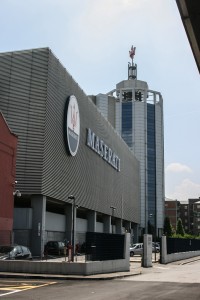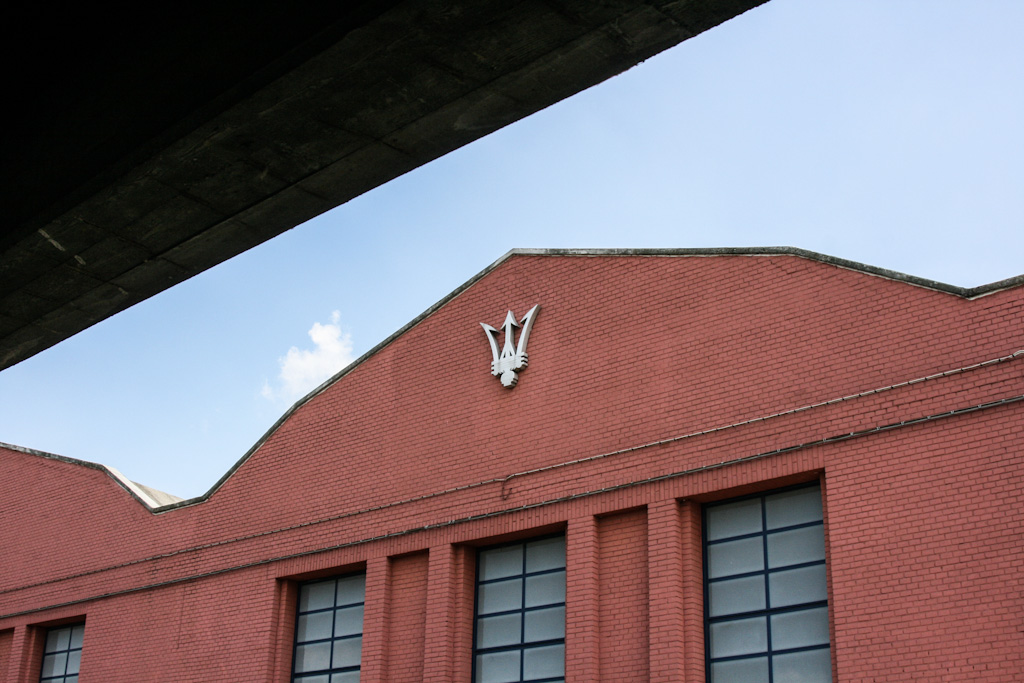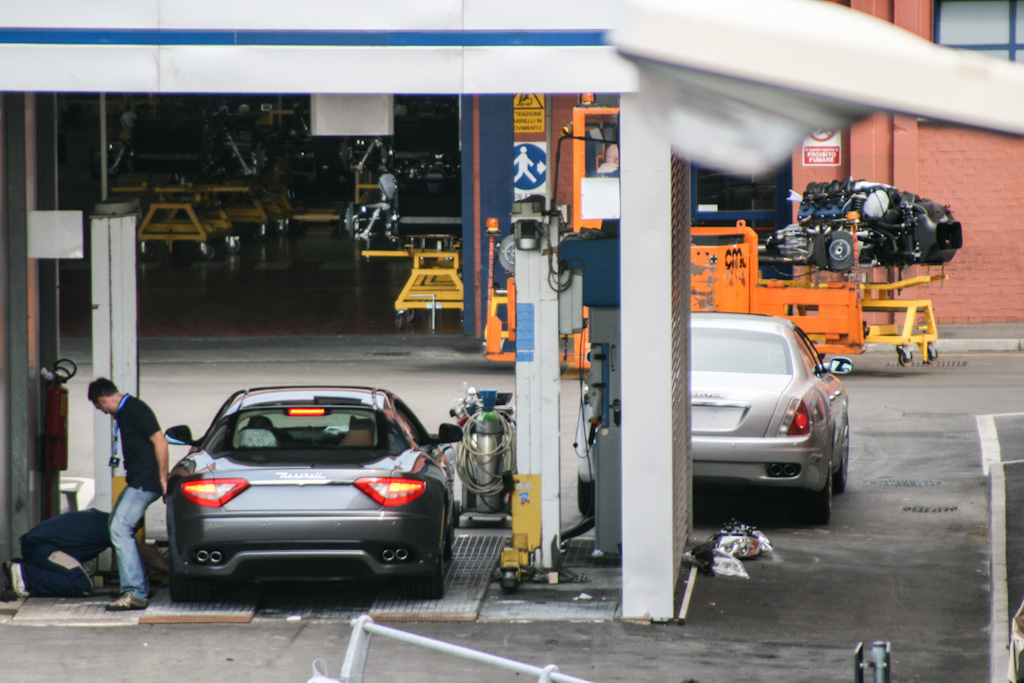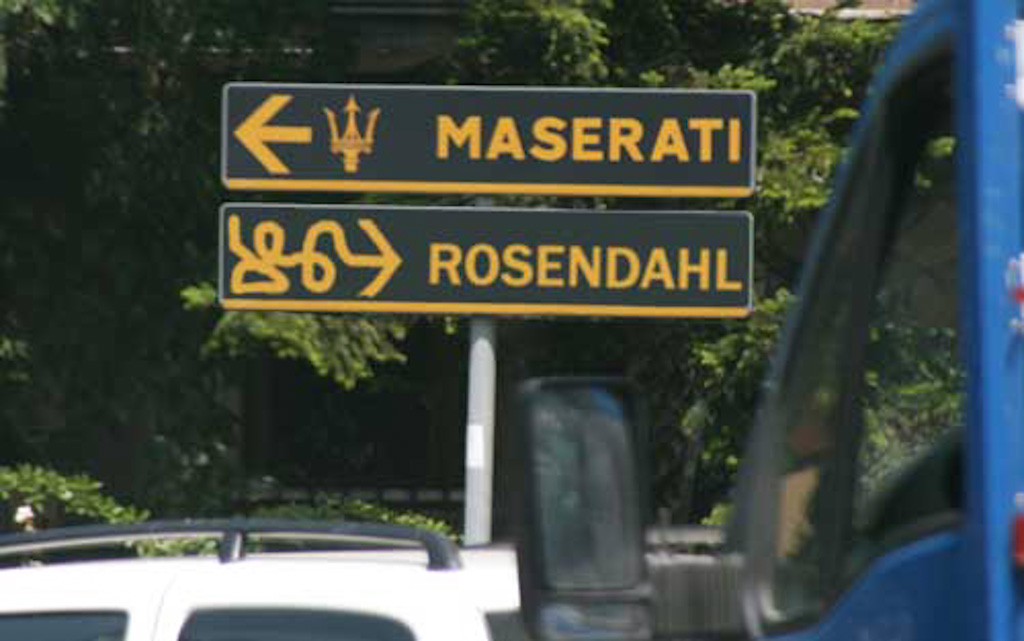The Maserati Factory in Modena.
View Larger Map
 We waited in the reception room, which housed a GranSport convertible, two Quattroportes, a GT3 racecar, and another Quattroporte under wraps that would be presented to its owner the next day. We began our tour by walking out into one of the two parking lots, the one used exclusively for Fiat-group cars. The other, larger, lot was nearby and had pictures of famous Maserati road and race cars on it. Two Gran Turismos, one left-hand-drive, one right, drove by as we looked at the parking structure.
We waited in the reception room, which housed a GranSport convertible, two Quattroportes, a GT3 racecar, and another Quattroporte under wraps that would be presented to its owner the next day. We began our tour by walking out into one of the two parking lots, the one used exclusively for Fiat-group cars. The other, larger, lot was nearby and had pictures of famous Maserati road and race cars on it. Two Gran Turismos, one left-hand-drive, one right, drove by as we looked at the parking structure.
We continued by walking by the staging facility where they gathered all the components that would be installed in cars the next day. There were mountains of engines, transmissions (both automatic and semi-automatic), dashboards, driveshafts, and everything in between. As I stared drooling at this pile of mechanical goodness, two more Gran Turismos went by.
We then entered into the actual production line, which was probably 95% Quattroportes, with the remaining 5% being pre-production Gran Turismos (there were no Coupes, Spyders, or GranSports to be seen anywhere on the production line). There were two similar production lines that the cars would go down, then they would go down a third. One stop on the second line consists of lifting the entire, pre-built drivetrain into the chassis. During the third line, the cars get their doors installed, but not until about ¾ of the way down the line. The doors start at the beginning of that line as hollow shells, but slowly get built up to their full spec. When they are installed, it is about a 30 second process involving a vacuum-sucker thing that grabs the window of the door, and it is put into place.
The painting process was then explained, most of which is actually done at the Ferrari factory. The guide told two stories, one of a woman who wanted the color of her car to match the color of her lipstick, and one of a man from Dubai who had his car painted gold. 8 pounds of gold were used in the paint, and the interior was red ostrich-hide (unfortunately, they didn’t have either of those cars there).
When the cars leave that facility, they do so under their own power. Every car then goes on a 60-mile shakedown to make sure that everything is working correctly. You probably know that auto companies balance the tires. Maserati balances the gearbox as well. The cars are also put through their paces in a small facility out back, which includes a suspension test. The last place we stopped was the final quality-control room, which housed four more Gran Turismos which were being rigorously checked (our guide told us that four people from Pininfarina had been in the day before). Any small paint imperfections or dents are fixed, and the cars are sent off to wherever they will end up.






